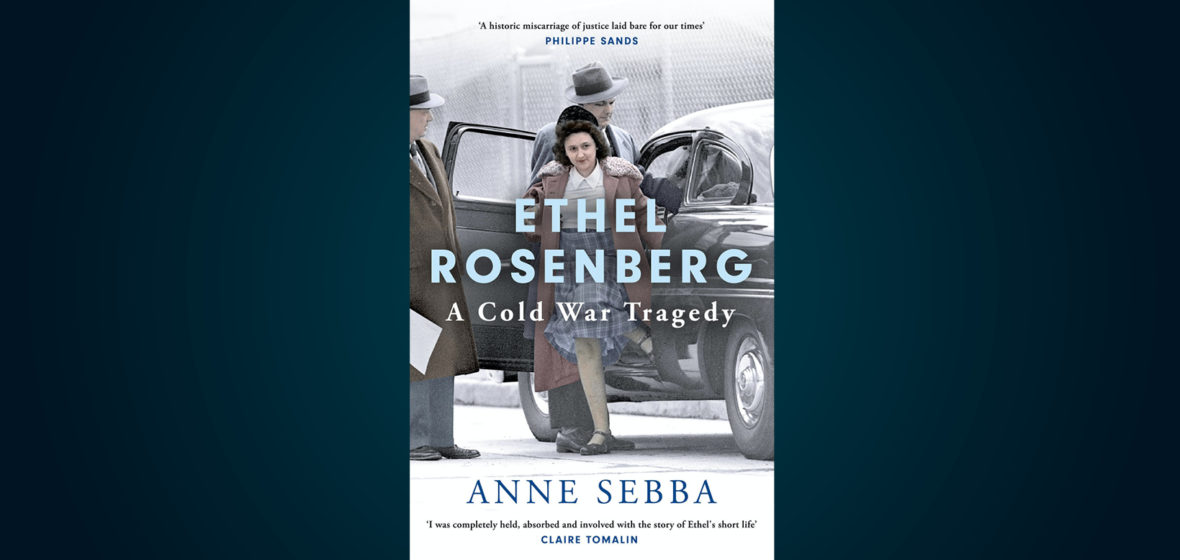Criminal cases are adversarial. Prosecutors and defence pushing their views at the expense of the other. If, however, the trial is held under an almost overwhelming cloud of fear and hysteria, spurred on by ambitious politicians and media and treasonous conspiracy is at its core, then events take on a more forbidding reality. Such was the capital trial of Julius and Ethel Rosenberg in 1950. The trial was riddled with miscarriages of justice, but the idea that justice might prevail in the trial of people identified as passing on Atom bomb secrets to the Soviet Empire, was not one accepted by those who should have prevailed.
This book focusses on Ethel, who was either a 50’s housewife, a socialist and a mother supporting her husband or the sinister person behind the transfer of her brother’s Los Alamos deepest secrets to the dictatorship the US was bound to face in WWIII. Sebba takes her readers to New York’s Lower East Side squalor, where Jewish immigrants sought a better life from Czarist Russia and the pogroms. Ethel found her love, and the father of her two boys, in Julius. But he is committed to the cause, as is her brother, and secrets are passed. Ethel is caught up, or complicit; the FBI maintained the latter. Family betrayal saw Ethel slated for death row.
When the day of execution approached, authorities couldn’t work out who should be first to occupy the wooden chair. Executing them separately gave a hope that after the first execution, the survivor might avoid death by naming names. J Edgar Hoover was emphatic and prevailed. Julius goes first; it would be a public relations disaster if Ethel died first, and Julius talked and lived. From the first page, you know the ending but getting there is an emotional tale of, to us now, an incomprehensible era which cannot be forgotten.




